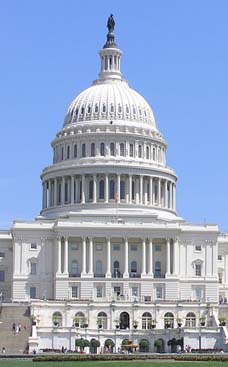
A longing for a simpler world, for a glimpse of the past, is one of the motives in travel. But the rest of the world has fared no better in terms of population pressure, and in many places it is much worse, even catastrophic. The population of Malawi 40 years ago was small and sustainable. None of us Peace Corps volunteers there at that time thought in terms of rescuing the country but only of helping to improve it. Now Malawi can't feed itself; it's one of the many countries that people wish to flee, renowned for being hopeless, unjustly publicized as an enormous orphanage of desperate tots, needing to be saved, devoid of pride, lost without us. The notion that a pop singer (back then it would have been Elvis) would breeze through and scoop up a child in a condescending gesture of rescue was unthinkable then. Author Paul Theroux served as a Peace Corps Volunteer in Malawi in the 1960's.
Paul Theroux writes: Remember the Cicadas and the Stars?
Remember the Cicadas and the Stars?
by Paul Theroux
American crowing is harmless enough, but the announcement this year that the U.S. population had reached 300 million, had (to my ear) the unmistakable growl of a boast. It was as though the colossal agglomeration of people amounted to another great score in our love affair with bigness.
The news gave me no pleasure. I just felt sad, while at the same time hating my wistful mood. Fogeydom is the last bastion of the bore and reminiscence is its anthem. It is futile to want the old days back, but that doesn't mean one should ignore the lessons of the visitable past say, when there were half that number of people in the country.
In some important ways life really was better then because of it. The overcrowded, much noisier, more hectic, intensely urbanized and vertical world of the present can seem hostile and hallucinatory to anyone who knew America in a simpler form.
In my lifetime the population has doubled. I'm glad I grew up when the number of Americans was so much smaller. How does one explain to anyone under 50, or to the grateful unfazed immigrant from an overpopulated nation, that this was once a country of enormous silence and ordinariness empty spaces not just in the Midwest and the rural South but in the outer suburbs of New England, like the one I grew up in, citified on one margin and thinning to woods on the other. That roomier and simpler America shaped me by giving me and others of my generation a love for space and a taste for solitude.
Talking fondly, and sadly, of the past, it is impossible to avoid the elegiac tone of Edmund Gosse in "Father and Son." In this, one of my favorite books, Gosse recalls the richness and beauty of the English shores of his youth, and the rock pools he had delved into with his father, who was a naturalist (and a crank). Gosse writes of "the soft and radiant forms, sea anemones, seaweeds, shells, fishes, which had inhabited them, undisturbed since the creation of the world," and then speaks of their violation by collectors: "There is nothing, now, where in our days there was so much." Fifty years before, "on the coast of Devonshire and Cornwall, where the limestone at the water's edge is wrought into crevices and hollows, the tide line was, like Keats' Grecian vase, 'a still unravished bride of quietness.' "
Even in its heyday, Medford, Massachusetts, was never compared to a Grecian urn. But it is impossible for me not to feel a sense of grief when I reflect on how my part of Webster Street the house footprint, indeed the whole block where I was born is now buried under Interstate 93.
Before that road was put through and Medford Square was still important, the Mystic River linked us to the world, and High Street rejoiced in the same sinuous contours it had in April 1775, when Paul Revere rode down it at midnight, warning of the British attack.
I grew up in a country of sudden and consoling lulls, which gave life a kind of pattern and punctuation, unknown now. It was typified by the somnolence of Sundays, when no stores were open. There were empty parts of the day, of the week, of the year; times when there were no people on the sidewalks, no traffic in the streets, no audible human voices, now and then no sound at all. In this hushed world, a bumblebee was a physical presence, the sound of a cicada could dominate an August afternoon.
Nowhere was solitude more available than on a long drive, especially at night; and it seems to me that my generation was defined by the open road, and the accompanying hope that a promise lay at the end of it. The almost trance-like experience of driving down the soft tunnel of a dark highway at night was something I relished.
Late at night, in most places I knew, there was almost no traffic and driving, a meditative activity, could cast a spell. Behind the wheel, gliding along, I was keenly aware of being an American in America, on a road that was also metaphorical, making my way through life, unhindered, developing ideas, making decisions, liberated by the flight through this darkness and silence. With less light pollution, the night sky was different, too starrier, more daunting, more beautiful.
I have not seen roads or night skies like that for many years.
A longing for a simpler world, for a glimpse of the past, is one of the motives in travel. But the rest of the world has fared no better in terms of population pressure, and in many places it is much worse, even catastrophic. The population of Malawi 40 years ago was small and sustainable. None of us Peace Corps volunteers there at that time thought in terms of rescuing the country but only of helping to improve it. Now Malawi can't feed itself; it's one of the many countries that people wish to flee, renowned for being hopeless, unjustly publicized as an enormous orphanage of desperate tots, needing to be saved, devoid of pride, lost without us. The notion that a pop singer (back then it would have been Elvis) would breeze through and scoop up a child in a condescending gesture of rescue was unthinkable then.
In India a few months ago, as I was leaving my hotel in Madras, I noticed a hotel employee shadowing me. He warned me that the sidewalks were so packed with people I would be swallowed up and stifled. He was right. And I was unable to cross the main street in Bangalore, a leafy city of under a million people in 1973 and now a hectically improvised sprawl of seven million. Mumbai's population of nearly 20 million rivals that of São Paulo and Lagos nightmare cities.
Travel, except in almost inaccessible places, is no longer the answer to finding solitude. And this contraction of space on a shrinking planet suggests a time, not far off, when there will be no remoteness: nowhere to become lost, nothing to be discovered, no escape, no palpable concept of distance, no peculiarity of dress frightening thoughts for a traveler.
Yet some of the most populous countries manage to be habitable because they are societies with strict, and civilized, codes of conduct. India, China and Japan are convenient examples, but I would include many African and Middle Eastern countries, too. The vindictive stereotype of the Muslim as a xenophobe does not tally with my experience of wandering in the Muslim world, where I have been treated hospitably, welcomed by strangers as "dayf al Rahman," a guest of the Merciful One.
We are passing through a confused period of aggression and fear, characterized by our confrontational government, the decline of diplomacy, a pugnacious foreign policy and a settled belief that the surest way to get people to tell the truth is to torture them. (And by the way, "water boarding" was a torture technique at the worst of the Khmer Rouge prisons.) It is no wonder we have begun to squint at strangers. This is a corrosive situation in a country where more and more people, most of them strangers, are a feature of daily life.
Americans as a people I believe to be easygoing, compassionate, not looking for a fight. But surely I am not the only one who has noticed that we are ruder, more offhand, readier to take offense, a nation of shouters and blamers.
Yes, it is just silly and fogeyish to yearn for that simpler and smaller world of the past. But one could ask for the past's better manners, the instinctive decorum that has served to mitigate conflict.
One of the lessons of travel is that, though half the world is wearing T-shirts and sneakers, they manage to live in overpopulated cities because they have not abandoned their traditional modes of politeness.
These grace notes, which make traveling in crowded countries bearable, are a lesson to us in a mobbed and jostling world.
Paul Theroux is a prolific writer. (www.paultheroux.com) Originally from Medford, Massachusetts, he currently divides his time between Cape Cod and Hawaii, where he lives with his second wife. Theroux also claims to have taken up his second profession: beekeeping. Theroux sells his honey under the brand name Oceania Ranch Pure Hawaiian Honey. His forthcoming novel is The Elephanta Suite.
Copyright © 2007 The International Herald Tribune


















